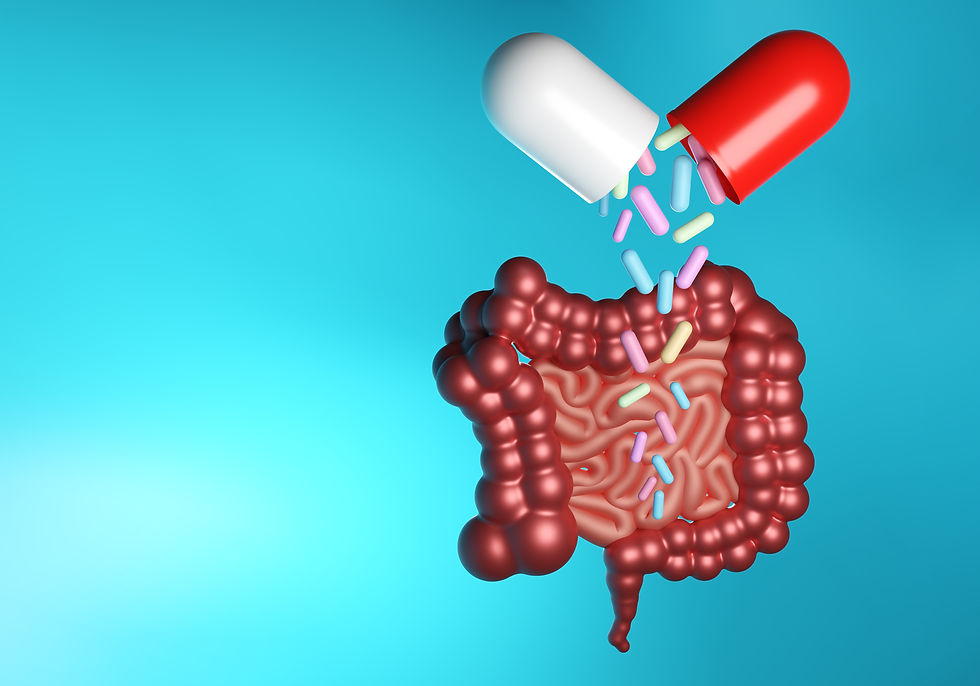"Research Roundup" December 2024 Edition
- Jennifer Philips
- Dec 31, 2024
- 4 min read
Research Roundup is a monthly newsletter from N of One’s UK-based science writer, Paul Whiteley, PhD. Each month we summarize a few research papers on a variety of topics in one simple, easy-to-read paragraph. It’s our hope that by skimming these each month, you will broaden your knowledge topics currently being explored by researchers and perhaps find information helpful in your journey of navigating a complex autism landscape.

Autoantibodies and autism severity?
Recent results from a team from Qatar adds to the increasing interest in the potential involvement of immune functions to autism spectrum disorder (ASD), and particularly, the immune reaction to self. In this case researchers were looking at autoantibodies - immune system proteins that attack the body’s own cells - researchers found various autoantibodies to be upregulated in autism compared to non-autistic controls, alongside subtle differences in B cell function, a type of white blood cell that makes antibodies. Perhaps just as important, they also looked at autoantibodies in relation to the severity of autistic symptoms as measured by the use of the gold-standard autism assessment instrument called the Autism Diagnostic Observation Schedule (ADOS). Based on levels of 8 autoantibodies, they were able to quite accurately gauge the level of autism severity in their cohort.
[Note From J. Rodakis: N of One has a multi-year study also exploring the presence of auto-antibodies in autism with noted immunologist Dr. Judy Van de Water at UC Davis Mind Institute.]
Does prenatal exposure maternal SARS-CoV-2 infection affect autism screener results?
Prenatal exposure to the pandemic and/or maternal exposure to the SARS-CoV-2 infection during pregnancy did not seem to affect offspring ‘positivity’ on one of the big autism screeners, the Modified Checklist for Autism in Toddlers, Revised (M-CHAT-R) according to new research out of New York, USA. Drawing on data from one of a number of initiatives looking at how the recent pandemic has potentially affected many areas of health and wellbeing, researchers looked at over 1600 children born before and during the pandemic and some with exposure to SARS-CoV-2 as a function of their mothers’ exposure during pregnancy. They reported no increase in positive autism screening rates among those exposed to the virus either in-utero or when born during the pandemic. While providing some initial reassurance, there are limitations to the findings on the basis that the M-CHAT-R is only a screening instrument for autism (it does not diagnose) and the short follow-up time for participants (until 30 months of age). Only longer-term studies will tell whether autism rates were or weren’t affected by the pandemic. Indeed, a case report describing autism appearing, and gradually improving, following a COVID infection has also been recently published.

Dual endorsement for the (preferential) use of probiotics for autism
A double ‘thumbs up’ for the potential use of probiotics for autism has appeared in the scientific literature. Two reviews - one from Iran and one from Canada - both highlighted how the use of specific probiotic preparations (probiotics defined as live microorganisms such as bacteria that are thought to positively affect health and wellbeing) may well have some usefulness in the context of some autism. Cumulatively, the reviews highlighted how certain types of bacterial species seem to ‘predominate’ where a diagnosis of autism exists, and may be amenable to specific probiotic intervention. Such work follows other previous reviews set within the idea of a ‘gut-brain’ axis related to conditions such as autism, where the trillions of gut bacteria that populate the human gut seemingly play some important roles in development and behavior.
Approximately 1.4% of adults self-reported an autism diagnosis in England in 2022
Another study from the UK has added to the important question: how prevalent is autism among adults? The answer or rather estimated answer: around 1.4% of adults (aged 16 years and over) self-reported being autistic in England. Researchers relied on data collected following use of the National Health Service (NHS), a resource where healthcare is provided free at the point of need across the population without a need for health insurance. Using information from the 2022 General Practice Patient Survey (GPPS), where patients registered for primary care resources are asked about their healthcare experiences, some 4,500 people out of a total study population of nearly 620,000 self-reported being autistic. Various other demographic and healthcare-relevant information were also described; not least that access to primary healthcare can be improved for those self-reporting autism. The 1.4% prevalence figure reported isn’t necessarily 100% accurate, insofar as the focus on self-report and the possibility that those with higher support needs autism may not have been included during the survey. That being said, other independent data previously produced by some of the authors of this new study, observed a 1.1% adult autism rate for 2014 covering the very wide autism spectrum. The recent results would suggest the adult autism rate is quite static compared with the ever-increasing childhood autism prevalence estimates which are now hovering around 4-5%. This has potentially important implications for what age-groups might be driving the phenomenal increases in autism numbers witnessed in recent decades.
Full-text: https://bmjopen.bmj.com/content/14/9/e081388




Comments